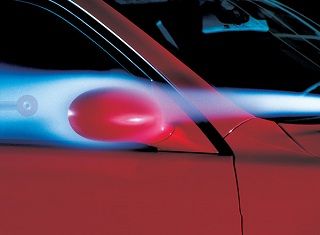American Council on Renewable Energy Hosts Great Conference on Alt-Fuel Transportation
I just got back from another wonderful conference hosted by the American Council on Renewable Energy (ACORE) – this one in San Diego, called the Transportation and National Defense Forum. I skipped the first day, which focused on the military, not because I’m unimpressed by what the U.S. Army and Navy are doing vis-à-vis clean energy, but because I had a day packed with meetings elsewhere.
Here are a few notes:
• Apparently, a proposal to grow a variety of huge beets as the feedstock for biofuels (perhaps the size of cantaloupes?) in California’s San Joaquin Valley is being reviewed favorable. It was hard to know what to make of this, as, last time I checked, the U.S. generally seemed dead set against using food as fuel, and some people (including me) believe that the overuse of the land, the environmental cost of water to irrigate, the ever-expanding use of chemical fertilizers and pesticides, and the erosion of topsoil make this a disaster from an ecological perspective.
• Some of these presenters are great supporters of California’s “cap and trade” program, where others are smart enough to see that it won’t work, and honest enough to say exactly that. We need regulatory certainty, and we also need price certainty. Here, only a carbon tax helps in any legitimate way. Cap and trade has a moneyed constituency behind it, and it is sure to make rich people and their lawyers richer. But if you actually care about a positive environmental outcome, it’s a sure loser. Too bad. The world looks to California as a leader in progressive thinking in sustainability – and this is the best we can do?
• One area in which California is doing well is leading in low-carbon fuel standards. But, predictably, the petroleum groups are suing the state up one side and down the other, and they may well win in the end. We heard at excruciating length from a presenter whose point, at the end of the day, was that this is held up in the courts, and that the decision, when and if it comes, will certainly be appealed. Good news for the oil companies, and fantastic news for the lawyers on both sides, but bad news for the rest of us.
• Dan Sperling of the University of California at Davis did a good presentation in which he laid out the history of what the Golden State has done vis-à-vis clean energy over a long period of time. He began with an “atta boy” for the state, in which he explained how California did a fine job in reducing air pollution in the late 20th Century, in a time in which Chrysler and Mobil were routinely running full-page ads in the New York Times, describing the state’s efforts as the “66 Billion Dollar Mistake.” Dan went on to talk about how, in a world in which the number of cars is rapidly heading from one billion to two billion, that petroleum is becoming more carbonized, i.e. the carbon impact of a gallon of gasoline is growing by the day, where the carbon footprint of electric vehicles is steadily falling.
On behalf of all of us who work to make renewable energy a reality, yet one more fond note of my sincere appreciation to Dennis McGinn, ACORE’s president, and his terrific staff for another excellent job.
Good stuff. Glad I took the time.

